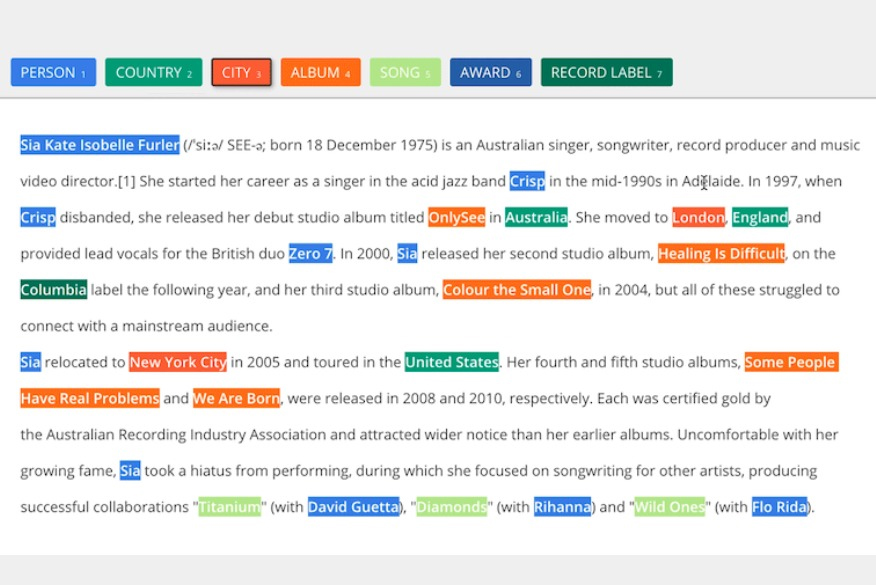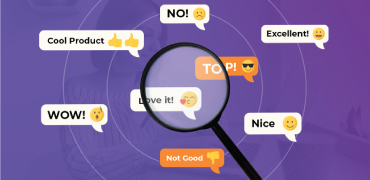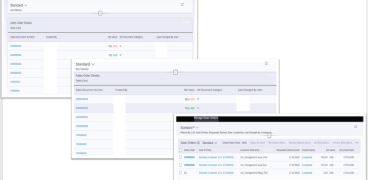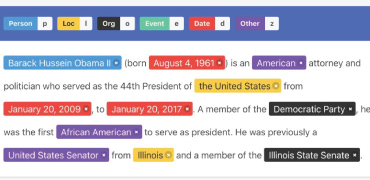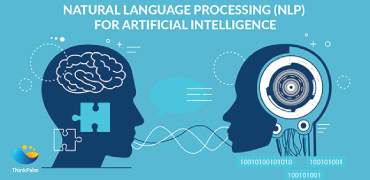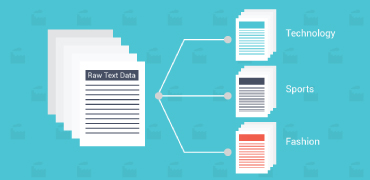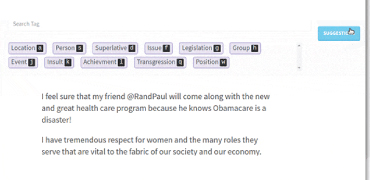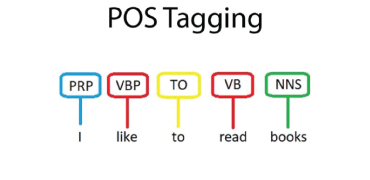What is Text Annotation?
To make AI learn, comprehend and respond like humans, we must give the machines perspective, understanding, and feeling – three concepts integral to the human psyche. This is where Text Annotation comes in. It helps prepare datasets to train machines how to read, understand, and analyze the rather complex human language, helping them better understand and mimic human conversations and behavior.
Text annotation is the process of identifying and labeling a digital file or document and its contents with additional information or metadata to define sentence characteristics. It highlights criteria such as different parts of speech in a sentence, grammar, syntax, keywords, phrases, emotions, sentiments, sarcasm, etc., depending on the scope of the task at hand. The ultimate goal is to enrich the machine-human technological interactions.
Enquire Now
Sentiment Analysis
aiTouch's advanced sentiment analysts can identify trends and nuances in large volumes of text data. It is a crucial technique of text annotation as it allows AI models to detect specific sentiments, hidden connotations, and opinions. From social media, product reviews, brand monitoring, financial analysis, employee engagement, in-depth customer insights to market research and analysis, and so much more, sentiment annotation has a broad range of applications. Organizations can get actionable customer insights from diverse and disparate information sources online by interpreting text data.
Intent Annotation
aiTouch's text annotation experts analyze the need or desire behind a text and classify it as request, command, or acknowledgment through appropriate labeling. It helps drive the development of next-gen digital assistants, chatbots, and conversational AI products in healthcare, retail, media, tech, and finance.
Named Entity Recognition (NER) & Entity Extraction
aiTouch powers innovations in digital document analysis, knowledge base curation, and conversational AI development by annotating entities to identify, classify, underline, and link relevant text and metadata strings. It helps machines understand the text's subject matter and is pivotal in chatbot training, often used for improving search-related functions and enhancing user experience.
Natural Language Processing
aiTouch's text annotation services make the essential keywords in the text understandable to AI-driven machines through NLP. We add value to our clients' AI business by providing the correct metadata in each line of a defined text. Properly annotated texts ensure that natural language processing is carried out correctly, and ML algorithms can easily understand the sentiment between the lines of texts or strings of words in multiple languages. They help elicit valuable insights to improve functions like search relevance that further help improve automated chat systems commonly employed in customer service domains.
Text Classification
Our experts classify an entire body of text based on content type, intent, sentiment, and subject with a single label. It is often used to label topics, analyze intent & emotional sentiment, and detect spam. The datasets are fed into the system based on predefined criteria, which the machines can access to generate a response. Document and product classification are prominent use cases where datasets are developed to train ML and DL models.
Linguistic Annotation
At aiTouch, we analyze the language data for an additional annotation type - phonetics. Here, nuances like natural pauses, stress, intonations, and more are also tagged. This approach is of specific importance for training machine translation models.
Image Annotation
The combined force of our image and text annotation services helps our clients successfully train models that operate jointly on images and texts. It is beneficial for Intelligent Document Processing (IDP), image summarization, product, logo identification & recognition, generating better word embeddings, etc.
Part of Speech (POS) Tagging
We analyze your text data and assign specific Parts of Speech (POS) tags to each word, covering the functional elements of speech like identifying adjectives, adverbs, verbs, pronouns, punctuation, prepositions, adjectives, etc., in a sentence. Sentiment analysis and classification are the most common use case for this type of text annotation.
Why aiTouch
Training machines to understand and correctly interpret the visual world requires a high volume of precisely and accurately labeled training data. Experience, expertise, and access to state-of-the-art tools are crucial as AI programs can function optimally only with concisely labeled data. Data that is customized to your project and specific data training needs. Data that delivers the best cost: quality ratio. That’s where we come in.
aiTouch is your one-stop solution for all your data-related needs. Our end-to-end text annotation services and common workflows include intent analysis, sentiment analysis, Named Entity Recognition (NER), Natural Language Processing (NLP), linguistic annotation, and entity linking. We provide high-quality annotated text data for object classification, detection, localization, and segmentation in various use cases. We tailor our specialized portfolio of end-to-end annotation services and solutions to cater to your AI model training needs. Our highly skilled data annotators apply best practices and in-house next-gen text annotation & labeling tools to deliver world-class training data to our clients worldwide. We combine people and technology to create data that powers AI and automation while maintaining complete data security and confidentiality.
Organizations working on AI ML-based business models can leverage our advanced and customizable text annotation services. These could be spread over many domains, from finance, product marketing, social media, e-commerce, retail, healthcare, insurance, legal, biomedical, etc.

Healthcare
Text annotation helps elicit valuable insights from the healthcare database. These can improve patient outcomes, manage compliance and streamline operations, revolutionizing how medical diagnosis and treatment are carried out.

Legal
The legal industry is flooded with large, often arcane, highly technical documents requiring hundreds and thousands of man-hours to process. Text annotation marks the first step towards automating this arduous process and saving valuable time and resources.

Finance
Text annotation helps extract and organize relevant material from vast volumes of unstructured data to automate and streamline manual processes and operations. It can transform complex documents into actionable intelligence leading to enhanced customer experience.

Insurance
Using text annotation to extract details from application forms, adjuster notes, and other unstructured text sources helps insurance companies become more efficient and minimize their risk quotient.

Product Marketing
Text annotation can be combined with language modeling and generation to fuel systems that generate slogans and marketing copies, helping in the effective positioning of the products.

Government
Text annotation offers the ideal solution for handling sensitive data that requires secure processing. Analysts trained in domain-specific vocabulary use linguistic annotation to extract intelligence from vast government databases to enable process automation.
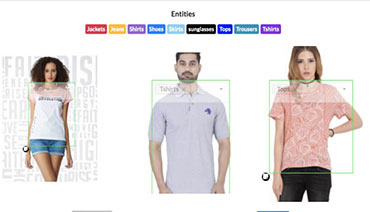
Commerce
Text annotation in the trading domain helps analyze customer sentiment and intent via reviews and comments. Optimized training data for AI & ML has made imagining innovative consumer experiences in the retail space more plausible. It also helps in mining useful information from unstructured data to improve customer experience.

Social Media
Social media platforms are influential and vast sources of valuable consumer stories and opinions. However, acronyms, complex abbreviations, and emoticons form a big chunk of this information bank which is incomprehensible for untrained AL models. Text annotation helps in transforming this into structured data to provide valuable insights.

Biomedicine
Text annotation is a powerful tool for identifying critical medical entities such as medications, genes, chemicals, and diseases. It facilitates comprehensive searches of large pharmaceutical libraries and databases of genes and proteins connected to diseases like cancer, multiple sclerosis, etc., that can help in advanced research in these areas.
